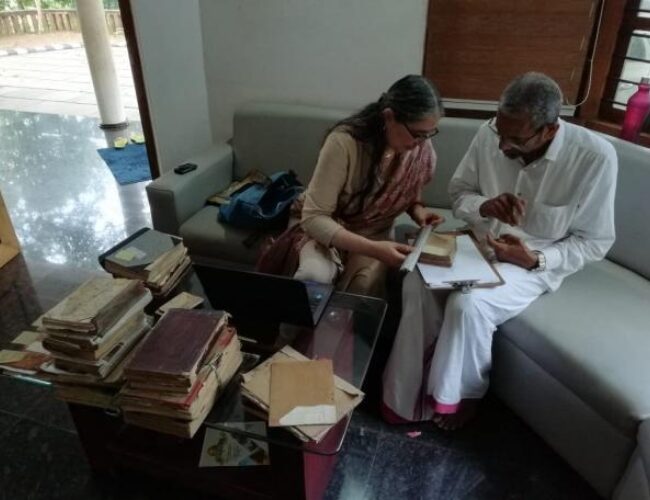The Arabic and Arabic Malayalam literature of Kerala (Malabar) constitutes an important, under-researched link in the history of intellectual and religious networks in the pre-modern Indian Ocean World. Threatened by floods, manuscripts and archives in the region are in dire need of preservation.

Malabar constituted a hub of Muslim networks in South India. The region’s archives depict the trade diaspora of Malabar Muslims, linking West and Southeast Asia for nearly a millennium, through hand-written and ornamented manuscripts, lithographs and recitation by traditional performers. The manuscripts are held in different locations, in private and institutional archives. The floods in Kerala in August 2018 highlighted the urgency to protect manuscript archives in the region. The current condition of the manuscripts is unsustainable and unstable. The intangible, performative dimension of the archives is undergoing radical standardisation, significantly altering its traditional and regional features. The aim of this pilot survey project was to locate the archives and make an inventory of texts, and to expand improve the understanding of digitisation and archival preservation among the archival owners. The project collected three permission forms for a future digitisation project in the region, surveyed four archives and catalogued three collections. The team established contact with public archives around Calicut, which will be beneficial to future projects in the area. Finally, recordings were made of traditional Moulid performances in the Shree Shankaracharya University of Sanskrit Regional Centre.
